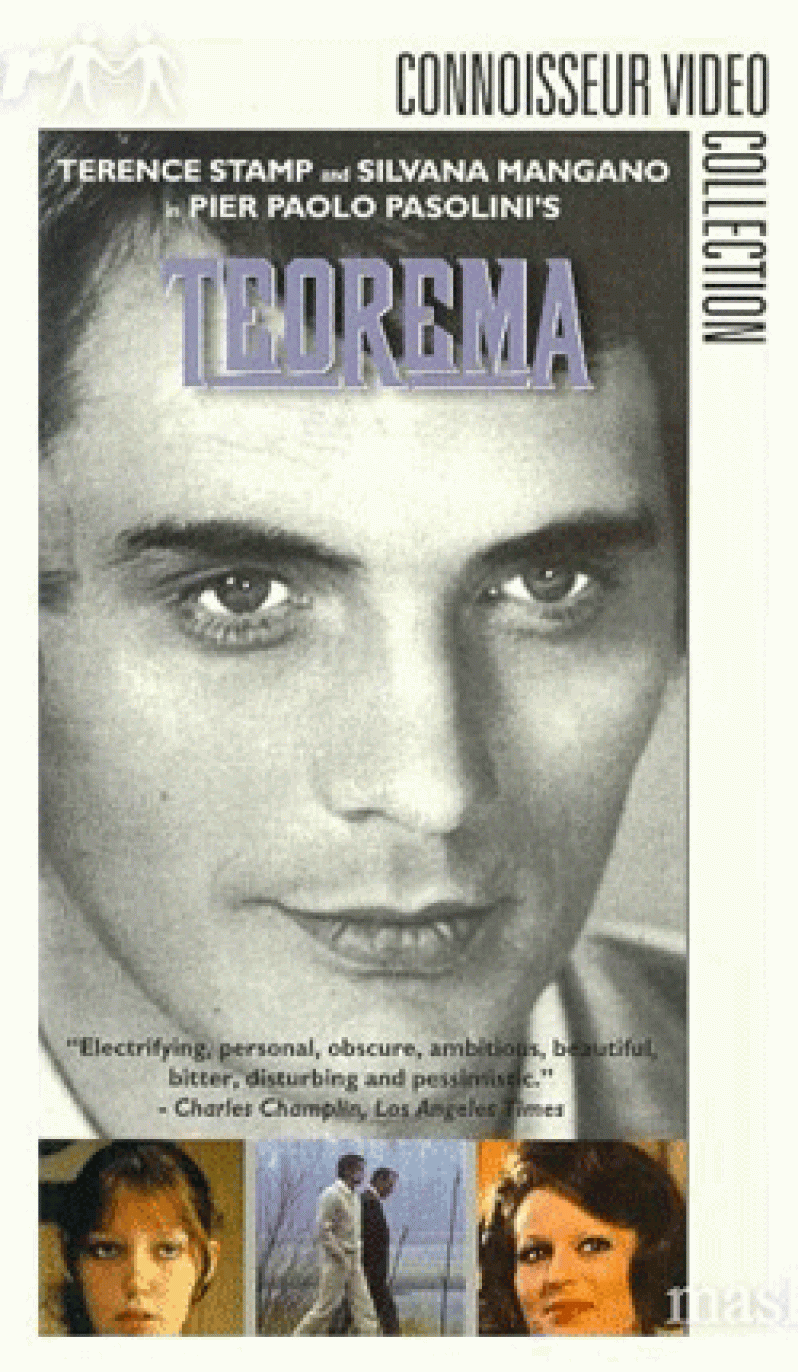BUT what of Mangano’s stylistic technique as an actress? What does she show on the visible surface level of the screen that proves her artistic accomplishment?  Mangano mastered the replacement of routine dramatic acting with the demonstration of an acted-out temperament, or an unfolding change. ‘Drama’ is a tautology left behind or outgrown by the advanced film directors of Europe, particularly Bresson, LeLouch, Godard, Antonioni, Pasolini, Bellocchio and others; playwrights like Luigi Pirandello, Samuel Beckett, and Eugene Ionesco; and Americans like Eugene O’Neil and Tennessee Williams, all of whom understood that dramatics pandered too much to the expectations of the audience’s emotions, with actors doing to themselves what they want the audience to do to themselves as well.
Mangano mastered the replacement of routine dramatic acting with the demonstration of an acted-out temperament, or an unfolding change. ‘Drama’ is a tautology left behind or outgrown by the advanced film directors of Europe, particularly Bresson, LeLouch, Godard, Antonioni, Pasolini, Bellocchio and others; playwrights like Luigi Pirandello, Samuel Beckett, and Eugene Ionesco; and Americans like Eugene O’Neil and Tennessee Williams, all of whom understood that dramatics pandered too much to the expectations of the audience’s emotions, with actors doing to themselves what they want the audience to do to themselves as well.
What opened up fresh territory of human response in viewers was the presence, or presentation, of structured situations, which demanded detailed observation, reflection, second thoughts, referential knowledge, mental agility and memory from audiences, even long after the film or play has ended.
The breakdown and abuse of the Arts today, particularly music, film, and creative literature, occurs from the easy substitute of artificial and tawdry ‘dramatics’ for true contemplative art, so that today, some developing nations are invaded and pervaded via their public communication systems by preachy didactic parochial pander-mongering, abusive, violent, bigoted, and noisy ‘dramatic’ opinions masquerading as ‘art’ under the license of ‘drama’.
Pasolini’s ‘Teorema’
In 1968, Mangano appeared in one of the great films of the 20th Century, ‘TEOREMA’, directed by Paolo Pasolini, justly regarded despite his brief outrageous and self-destructive lifestyle as one of Italy and the world’s most original and effective film directors, poets, and all-round creative writers.
Though Pasolini’s excessive and tragic life is not our main concern here, it would be a shortcoming to ignore its effect on his personal embodiment of filmmaking, since it gave birth to a self-critical formal style, where personal honesty took precedence over dramatic tautology. Pasolini went from the self-referential mythos of his first major film, ‘OEDIPUS REX’ (1967), to the far more objective and very effective, step-by-step, structural ‘hands off’ approach to story-telling in ‘Teorema’.
The inception of ‘Teorema’ as a play and novel before Pasolini finally transformed it into a film script and shot the film in Milan reflects the very formal root of the film’s startling demonstration of a sheltered, rich, sympathetic bourgeois family suddenly confronted by the appearance of a young stranger (one of the most famous early roles of English actor, Terence Stamp) who stays with them for a while, and through his persuasive different views, sexually seduces father, mother, daughter, son, and maid, before vanishing as suddenly as he first appeared, leaving behind each seduced character wrenched out of their prior routine bourgeois satisfactions, and acting out disturbed, drastic changes in contrast to their previous conventionality.
Whether Pasolini had already read Mangano’s previous screen roles as conducive to her intended role in ‘Teorema’ as the suddenly promiscuous mother seducing young men after her experience with Stamp is open to question. Nevertheless, her highly erotic role again reveals the relationship between her body as a known past, and its now exposed and removed sexual repression, representing the experience of a new liberated feminine identity.
Film’s artistic excellence
‘Teorema’ was confiscated for obscenity when it opened at the Venice Film Festival, but Pasolini won the subsequent trial, since every intelligent juror knew that the routine influence of the Church and State had been offended and challenged by the film’s more practical and demonstrative exploration of identity, morality, and the experience of freedom.
No dilettante playing at a rebellious ‘art for art’s sake’, Pasolini’s acclaimed and shocking creative writing and films are never far removed from deep social relevance. ‘Teorema’s theme of sex and seduction used as power over others, or as a path to power via clandestine seductive acts used as methods of embarrassment and wishful sterilization of others, was not first created by Pasolini’s film, but rather exposed by it, with much extra social meaning. It succeeds precisely because of its forbidden topic, and its formal undramatic ambiguity.
The film proved that both Italy’s and international modern culture can always turn to their vast accumulated achievements in the Arts for sustenance against inevitable social crises and mental lassitude, both of which continue to remain minor irritants beside such colossal creative achievements. If the Arts cannot provide such perennial humane sustenance, of what true value are they?



.jpg)








